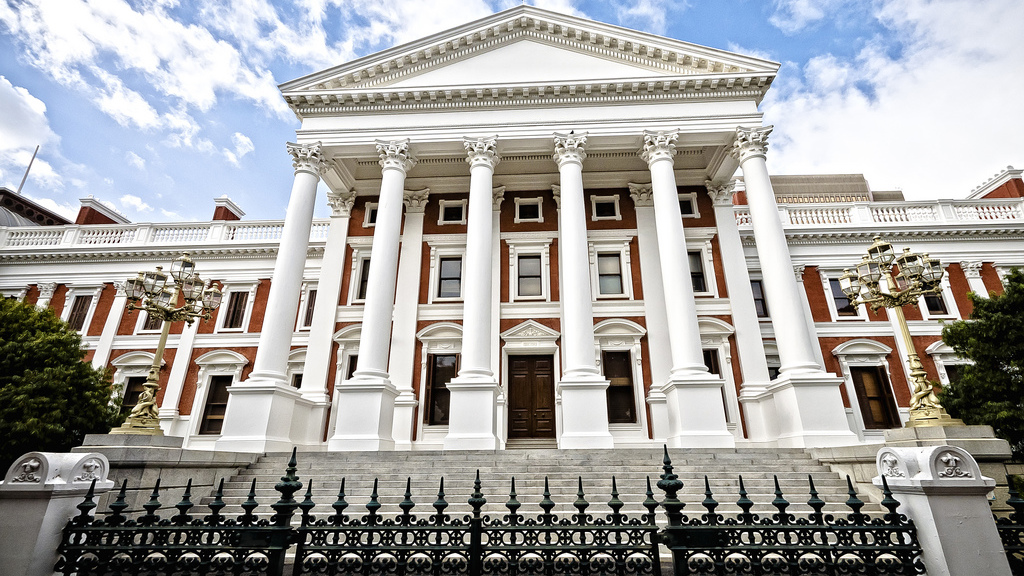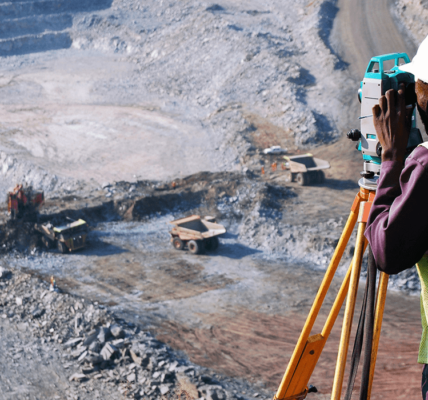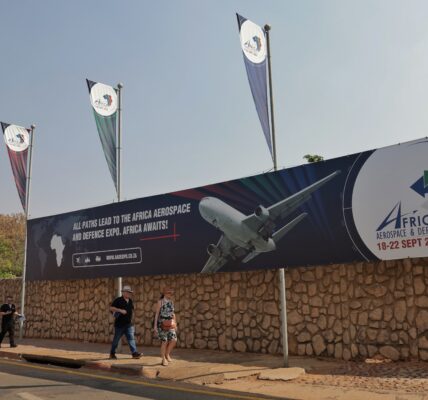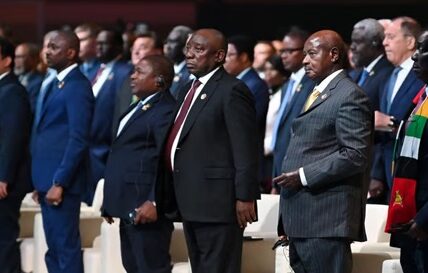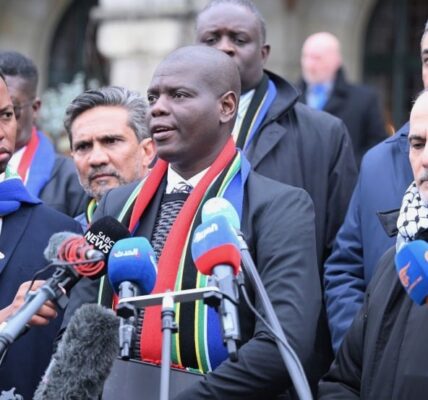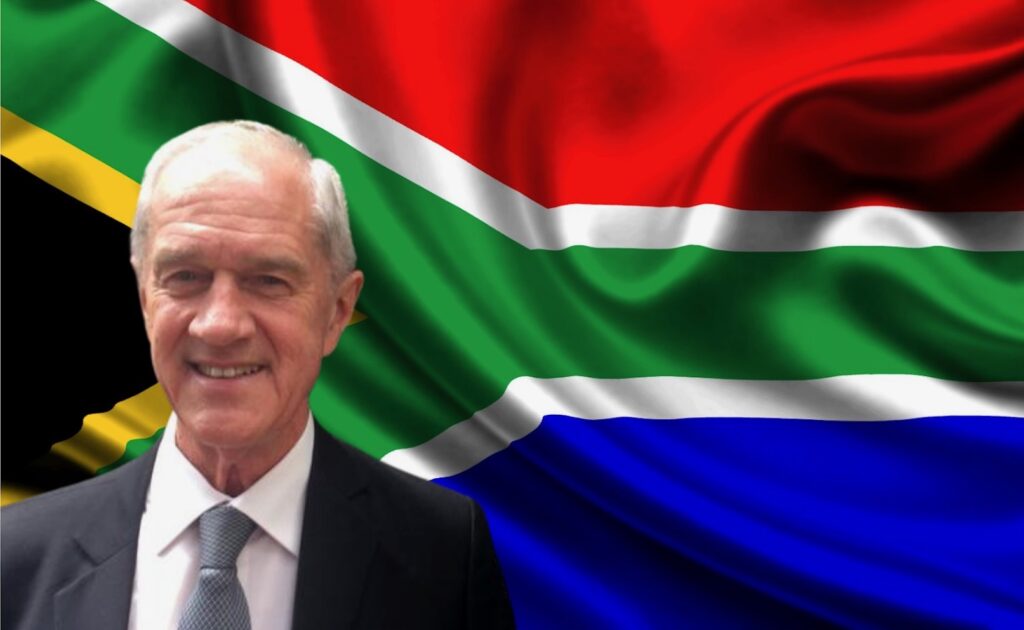
Amid ongoing negotiations between the ANC and opposition parties to form a Government of National Unity (GNU) following their failure to secure a majority in the May 29 elections, Roelf Meyer, one of the architects of South Africa’s Constitution, says a GNU is the best option under the present circumstances for the country. In an interview with National Security News (NSN), Meyer said the breakaway of the MK Party from the ANC offers President Ramaphosa a unique opportunity to steer the country in a direction he believes is best. Meyer stated that if the EFF refuses to collaborate with the DA and the MK Party seeks to abolish the Constitution, “there is no space from them in the Government of National Unity.” Despite the EFF and MK Party being a sizeable group, he said 70% of voters supported Mr Ramaphosa for the country’s future. Meyer also highlighted the need to address the grievances that fuelled the MK Party’s support in KwaZulu-Natal and said new solutions needed to be found for contentious issues like land expropriation, Black empowerment, and National Health Insurance. He warned that while seeking consensus is important, an indefinite process is impractical and a decisive line must eventually be drawn. – Linda van Tilburg
Key edited quotes:
GNU is best option for South Africa
I’ve thought about it a lot since the results came out and in my view, the Government of National Unity idea or concept is probably the best under the circumstances. It would allow for maximum inclusive participation by the different parties, none of which has a clear majority. I think it’s the better option to allow a broad range of parties to participate. If they don’t want to, then it’s another case. It’s up to them. The approach we followed years ago in the 1990s was to allow parties to withdraw when they don’t want to participate. The seats will be available, but if they don’t come to participate, then it’s up to them.
Zuma / MK Party breaking away from the ANC presents an opportunity for Ramaphosa
I think President Ramaphosa has a clear vision of where he wants to take the country under the current circumstances. He has been criticised for his lack of firm decision-making and or firm implementation of policy issues. I think his reliance on ensuring unity within the ANC was probably at the core of how he conducted his business as party leader and as president of the country over the last five years. Some elements in the ANC quite frankly let him down in that process. Now, it’s at a stage where unity is no longer being practised by the ANC, we have a breakaway group that is quite substantial, the uMkhonto we Sizwe party, which is essentially ANC members that left the organisation and this provides for President Ramaphosa the opportunity actually to go forward in a way that he thinks would be best for the country.
EFF, MK Party demands mean there is no space for them in GNU
I followed his statement on Thursday evening, and he was very clear in his pronouncements, seeking the best interests of the country – the national interests, he emphasised more than once, comes first. He is seeking to form a government based on certain principles, foremost of which are the principles contained in our Constitution, Chapter One and Chapter Two. Chapter Two is the Bill of Rights and I think he was very clear on that. In my understanding, he will follow the vision of forming a new government for the country, which will be in the best interest of all citizens of the country. So, in terms of inclusivity, which a government of national unity needs – if the EFF says, no, they can’t be there with the DA and the MK party, and they want to abolish the Constitution. Clearly, there’s no space for them in a Government of National Unity.
70% of voters support Ramaphosa’s vision for South Africa
The EFF and the MK combined have about 25 % of the votes, 24, – 25 % of the vote. So, it’s not an ignorable group within the voter population of the country. On the other hand, I think one can also say that probably 70 % of those who cast their vote in this election would support Mr Ramaphosa, would support his line of thinking and what the ANC had presented as their solution for the country. I think that is what has to be weighed up. So, if 25 % say they don’t want to participate, it’s up to them. Keep their seats open, like I said earlier. But if they don’t want to participate, it is for them to decide and then they are in opposition to this government that is to be formed, that is the line of thinking that I would follow. At least 70 % of South Africans said they prefer a government that can go forward and govern properly.
Meyer does not think he can play a role in negotiations for the GNU
If you ask me personally, no, it’s not something that I think I can play a role in and I’ve not been invited, but it’s up to the President. I think the President is seeking the support of his elders, mostly within the ANC, people who have gone through government experience, President Mbeki and Kgalema Motlanthe, at least under the current circumstances and if they would help come to a solution, then so be it.
Work from the top down to get agreements, devolution of powers to provinces lower priority
There was a strong argument, by the way, within the IFP at the time and within the Zulu community that argued for the separation of KwaZulu-Natal [in the 90s]. There will be certain issues that are more important than others to find agreement on the Government of National Unity. I think one has to work from the top down in seeking the agreements. The starting point, of course, is the Constitution. I think there’s a majority of opinion within the parties that would consider participating in the government of national unity, that they subscribe to the Constitution. I think that is a precondition that nobody can walk away from if they want to participate and then the Bill of Rights is a clear prescription that I also the parties should subscribe to… and then you will find a number of issues that are of lesser or more importance.
Land expropriation, black empowerment: Let’s come up with something completely new
My view is, that let’s take a different look at how we can resolve the land issue. There are ways to address land expropriation and the proposition that I would like to put forward for consideration is to say, let’s come forward with something completely new because of the current provisions and policies have not delivered what is required by the people of South Africa, let’s find another way to adhere to the provisions of the Constitution, because the Constitution is very clear on the subject of land. It’s imperative that there shall be land redistribution. But if it hasn’t happened, it means we have to find another way to do it, to follow the provisions of the Constitution.
The government of national unity, when it comes into being, provides an excellent opportunity for parties to look anew at finding solutions for the country. The same would apply to black economic empowerment, which is a thorn in the flesh of some political participants. Similarly, the subject of national health insurance is very new in our debates. But again, I think it’s important that the parties participating in the government of national unity say, okay, let us look jointly at how this can be addressed so that the people of South Africa, the country’s citizens can benefit from new policies that can deliver instead of hanging in the air and result in a lot of dissatisfaction.
The grievances of voters in Kwazulu-Natal should be addressed
I think it is going to be very important to try and accommodate the group that’s being represented by the Umkhonto we Sizwe Party. The majority of the support they drew in this past election last week would probably come from the Zulu community. If that is so, one must also ask the question, why did they succeed within a very short period of time, since September last year, to draw such a lot of support within a particular part of South Africa and that is the KwaZulu-Natal province?
By finding out the reasons why, I think it can be addressed and it should be addressed to ensure that there is participation by those that represent that community and make sure that they don’t feel left out because that might be one of the reasons that they have felt that they’ve not been considered sufficiently as part of the South African political environment. If they feel they’ve been left out, or ignored, or that they feel angry about certain matters that the government has dealt with in a certain way in the past period of time, then those have to be addressed. You can’t ignore it. Otherwise, you create a situation that could spill over into violence.
Need to stand firm against threats from Zuma
One can’t be kept under a threat continuously, like Mr Zuma did last Saturday when he threatened the IEC and said, if you release the results, there will be trouble. I think that the IEC handled it perfectly by standing firm and saying, we’re not going to listen to this because there is no proof that the vote count was wrong or that they were defaults. They went ahead and announced the results on Sunday. So, I think what they did was a good model of saying, ‘You can’t be threatened by people that believe they have certain rights above others.’
Seeking consensus can’t go on indefinitely
At some point, a line has to be drawn. You can’t carry on indefinitely with consensus-seeking. If relevant participants in the process don’t play the game, then it’s clear you have to go forward. As I said in my earlier argument, at least 70 % of the people have cast their vote in favour of some other form of joint government going forward running the country.

